Skype for Web beta brings voice and video chats to your browser without plugins
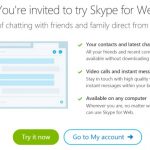
Installed apps are becoming a thing of the past. Microsoft is just one of a raft of technology companies gradually moving to the cloud and the latest display of this is a new beta version of Skype for Web. The messaging tool has been designed to be used in a web browser without the need for plugins, extensions or other software. At least that is the aim. During the beta stages you'll still have to install a small plugin.
Work being carried out by the Internet Explorer developers should bring plugin-free Real-Time Communications (RTC) to browsers in the near future, and Skype for Web will be able to take advantage of this. The beta is not being made available to everyone straight away, so you'll need to check your account to see if you can try it out.
Microsoft launches lockscreen apps for Android, Windows Phone
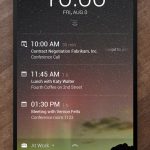
Microsoft app launches are usually predictable. Most are offerings which aim to get us hooked on the software giant's most-prominent products, like Office, OneDrive, Outlook.com and Xbox. But, every once in a while, Microsoft does something out of the ordinary, like it wants to tell the world that, much like startups, it too is capable of intriguing and exciting things.
After launching a lovely keyboard for Android Wear, Microsoft just released a whole bunch of apps for Android, iOS and Windows Phone, made by an in-house team of "hackers, makers, artists, tinkerers, musicians, inventors" called Microsoft Garage. The most interesting offerings are Torque, which my colleague Brian Fagioli just covered, and two lockscreen apps, for Android and Windows Phone.
Gmail for Android may support more email providers

On Android, setting up email services other than Gmail involves using the built-in Email app or heading over to Google Play to install dedicated clients. But it looks like users may soon get another option, as Google will likely offer support for more email providers, like Outlook.com and Yahoo Mail, in its upcoming Gmail 5.0 app.
This appears to be Google's way of ensuring that Android users will finally be able to enjoy a consistent email experience no matter what device they may use or what customizations and apps the operating system features. It is a welcome change, and one that is long overdue.
Microsoft saves MSN from oblivion
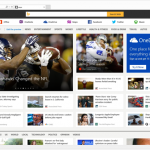
Do you know what MSN is? Yes, it is that online portal opened by Microsoft nearly two decades ago. Yes, it is also that default Internet Explorer webpage which you change more quickly than a race car driver can shift. But, fret not if you are not familiar with MSN, as almost no one cares about it anymore. To save it from oblivion, Microsoft has decided that the first thing that MSN needs to make a splash again is a nice revamp.
For many years, MSN was a product Microsoft cared little about. Instead, the software giant has pushed products with more potential and consumer appeal, like Office, Windows and Windows Phone. Now though, Microsoft wants to tie MSN in with its newfound strategy, recreating the online portal "from the ground up for a mobile-first, cloud-first world", and using many Bing-powered services (News, Sports and Travel, just to name a few) to boost its appeal.
I'm tired of my Microsoft PC breaking down on the Information Superhighway

Ninth in a series. User experience is an ongoing series of surprises -- discovery of something unexpected and useful when positive and discovery of annoying glitches when negative. Both evoke emotional responses. The latter is devastating as little frustrations build to crescendo. That's the state I near with my "Microsoft All-In" experiment. Dissatisfaction grows.
I started this journey on July 1, after buying Surface Pro 3. The tablet-hybrid promised so much, and my overall experience with the hardware is excellent. I can't say the same about the operating system, web browser, or supporting services. Clunky is good word. Think old car that runs well on the highway but sometimes stutters and stalls at stoplights. The overall UX is nowhere as smooth as Chrome OS or OS X.
Nokia X lineup gets new software update
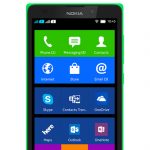
Even though Microsoft is planning to downsize its Nokia X efforts (to the point where there will likely be no new device announced), the software giant is still supporting its Android lineup by rolling out a new software update.
The update introduces the multitasking functionality from the Nokia X2 lineup, giving users the ability to easily switch and close running apps. It can be triggered by tapping on the App Switcher icon, after swiping down from the top of the display.
Skype for Android 5.0 readies the way for new 'Find your friends' feature
Microsoft has released Skype for Android 5.0, a new version of its chat tool that includes free audio and video messaging. The latest release concentrates on providing support for one single upcoming feature: find your friends.
The feature, which should roll out over the next few weeks, will give users the option of connecting Skype to their phone’s address book, making it easier to connect with existing contacts through the chat service.
Windows Phone 8.1: Why I ditched Android and couldn't be happier
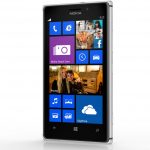
Of all the mobile platforms out there, Windows Phone 8.1 was literally the absolute last option I ever thought I would land upon. I had a burning hatred for Windows on the mobile side, seeing that I was forced into using a Pocket PC 6700 (Windows Mobile 5) years ago while working for a former employer. To say that experience soured my opinion of Windows Mobile is an understatement.
Frankly, and I don't care what the diehards say, Windows for phones prior to Windows Phone 8 should very well be erased from memory for anyone who had to deal with it. From unintuitive interface design, to cludgy touchscreen navigation with a stylus, it was a Picasso of a mobile OS for exactly all the wrong reasons.
I am Microsoft All-In

Sixth in a series. On July 1, I officially started my "Microsoft All-In" summer sojourn. Surface Pro 3 is my PC and Nokia Lumia Icon my smartphone for the next couple of months. Google gets the boot -- at least for awhile. I now largely use Microsoft products and services and third-party apps available for the company's platforms. Many commenters wonder why, so let me explain.
I last used Windows as my primary platform in 2010 -- never for Windows Phone. Like other BetaNews reporters, I tend to write about products used regularly. Writing is more authoritative from experience, and often only long-time use reveals hidden problems or benefits. The reality, and it's something obviously seen in comments: Microsoft platform users largely make up BetaNews readership.
I declare independence from Google

Fifth in a series. Two years ago today, I stepped away from Apple, following a boycott later abandoned. My problems were philosophical, regarding the company's aggressive patent litigation that thwarts innovation. This July Fourth I seek freedom from Google, and not for the first time. I don't oppose the search and information giant, nor like fanboy rally for it. I declare independence as a practical exercise; an experiment. Can you -- OK, I -- do without Big G's expansive portfolio of products and services? I want to know.
In many regards, Google is the Internet gatekeeper U.S. trustbusters asserted Microsoft would be, in their late-1990s court case. Big G is unquestionably a monopoly that integrates features and products for competitive gain. In the United States, Google's search share is about 67 percent (3.5 times greater than second-ranked Microsoft), according to ComScore, and as much as 90 percent in some countries. Android's worldwide smartphone share is about 80 percent, according to IDC.
Microsoft launches its first Android smartphone -- the Nokia X2

At the Mobile World Congress (MWC) back in February, Nokia surprised people with a new Android-powered smartphone series. The Nokia X line consists of the X, X+ and XL, with the devices designed to fit somewhere between Nokia's low-end Ashas and high-end Windows Phones. There was speculation that once Microsoft had taken over the Finnish manufacturer's mobile business that this new line would be killed off -- keeping the focus solely on Windows Phone devices -- but that turns out not to be the case.
Today Microsoft announces the Nokia X2, which the tech giant introduces "as the newest addition to the expanding Nokia X family of affordable smartphones designed to introduce the 'next billion' people to the mobile Internet and cloud services". Like the Nokia X, the new device gives users access to both Android apps and popular Microsoft services, like Skype, Outlook.com, and OneDrive.
Microsoft reveals impressive user numbers for everything (except Windows 8.x)

Today, during a keynote address at Computex in Taipei, Tony Prophet, corporate vice president of Windows Marketing, discussed recent Windows developments including Windows with Bing, relaxed certification requirements, Windows 8.1 Update, Windows Phone 8.1 and Windows universal apps.
He also talked about the value of Microsoft cloud services across devices, and revealed some hugely impressive numbers relating to everything from Office 365, One Drive and Skype to Xbox Live and Bing.
Skype vs Lync: The case for killing off Skype
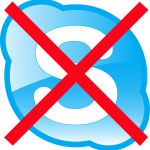
As we enjoy the restive Memorial Day weekend here in the States, I finally have a chance to relax from the hustle and bustle of tech consulting life. In my leisurely net browsing, I came across an interesting conundrum raised in an article I stumbled upon at ArsTechnica by Peter Bright titled simply "Lync 2013 is everything that Skype should be. Why do they both exist?"
It's a very intriguing question that led me to think a bit deeper about this admitted two-face coming out of Microsoft. This is especially true for me because I've had the chance to get knee deep into Lync since we ditched Google Apps in favor of Office 365 last year.
The most popular stories on BetaNews this past week: May 18 -- May 24

It should come as no surprise that this week's big news was Microsoft's Surface Pro 3 unveiling. Brian had been looking forward to the NYC event and was at the event to get hands on with the new device. There's certainly a lot to love about Microsoft's third generation tablet, but there is that price to consider. If you like the look of what you see, the device is available for pre-order right now -- and if you're undecided between the Surface and a MacBook Air, Mihaita compared the two. Maybe you're one of those who thinks it’s a niche product.
The Surface Mini failed to make an appearance, but there are still lots of other tablets to choose from -- although they are yet to make much of an impression in higher education, unlike Chromebooks which have found their way into Welsh schools. Will Microsoft's tablet manage to attain the longevity of Apple's iPad? You'd be forgiven for thinking that hell itself had frozen over at the news that work is underway that will make it possible to run Android and iOS apps side by side on the same device.
Google Apps Message Encryption keeps enterprise communication secure

Just yesterday we were looking at how there has been an increase in the level of encrypted traffic online, and today Google announces the launch of Google Apps Message Encryption (GAME). Google is partnering with Zix Corporation to bring fully encrypted communication to enterprise customers even when emailing contacts outside of Google's infrastructure. Emails sent to Google servers have been encrypted by default for a little while now, but the new launch means that emails sent to the likes of Yahoo and Outlook.com will also be encrypted.
As this is a third-party solution provided by Zix Corporation, Google is not offering full customer support for it, but a quick start guide has been published. Available for $35 per user, GAME enables Google Apps customers to not only ensure that the emails they send are encrypted, but also gives the option of setting up custom bounce messages for emails that are sent to unauthorized users who attempt to send encrypted emails.
Recent Headlines
Most Commented Stories
© 1998-2025 BetaNews, Inc. All Rights Reserved. About Us - Privacy Policy - Cookie Policy - Sitemap.